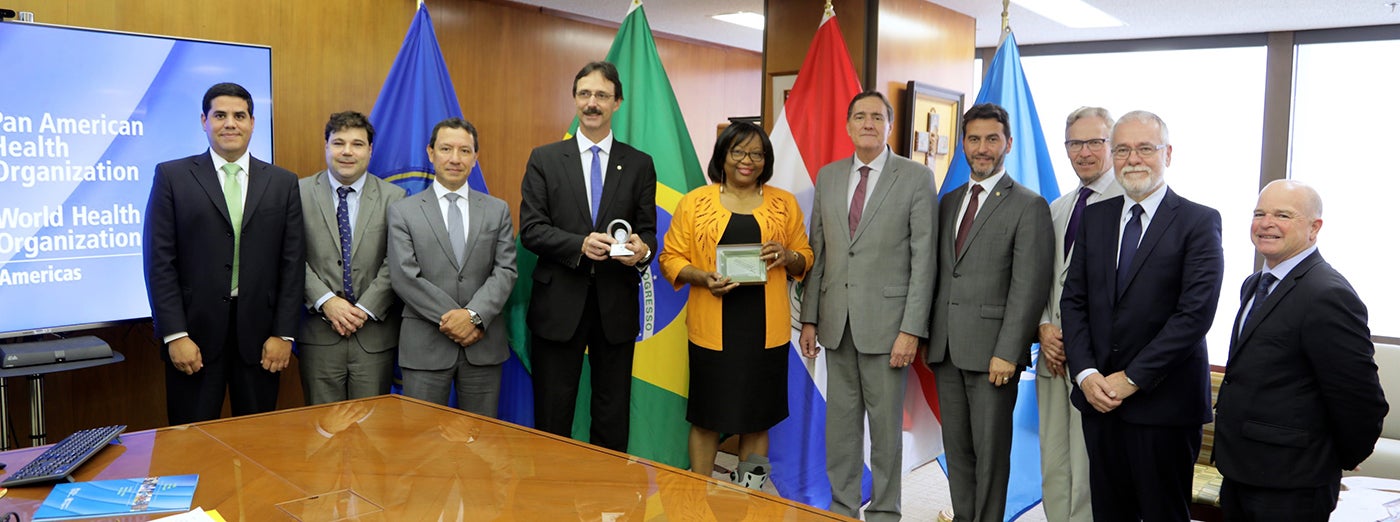Asuncion/Washington D.C 25 July 2018 (PAHO/WHO) - The Pan American Health Organization / World Health Organization (PAHO/WHO) signed a technical cooperation agreement today with ITAIPU Binational, an energy company managed by the governments of Brazil and Paraguay. The agreement seeks to strengthen healthcare systems along the triple frontier.
The agreement will contribute to the process of regional integration, country cooperation and health development in areas across the triple border between Argentina, Brazil and Paraguay, enabling all three countries to advance towards achieving the Sustainable Development Goals (SDGs).
Areas to be addressed within the agreement include the strengthening of healthcare systems; integrated health surveillance; the health of women, men, children, adolescents and the elderly; non-communicable diseases and mental health; and the development of human resources in health, among other issues. The agreement will also focus on the development of short, medium and long-term actions and strategies towards achieving universal health.
The Director of PAHO, Carissa F. Etienne, highlighted the importance of the agreement and the opportunity it implies for both organizations to work together to positively impact the health of communities living around the triple frontier area. She also underlined the importance of uniting efforts to reduce inequities and eliminating the barriers to accessing health services.

The agreement was signed by Dr. Etienne and Marcos Vitorio Stamm, Director General of ITAIPU Brazil at the PAHO Headquarters in Washington D. C. The agreement was also signed in Asuncion by James Spalding, General Director of ITAIPU in Paraguay and Luis Roberto Escoto, the PAHO/WHO Representative in Paraguay.
According to Escoto, the agreement recognizes "health as a fundamental human right." As a result, the lines of action outlined in the agreement will be approached with three, cross-cutting focuses - gender, interculturalism and the reduction of health inequities.
On his part, Spalding highlighted the value of this technical cooperation agreement, claiming that working together will create a synergy between the organizations that will enable collaboration so that "in 2030 we can celebrate the achievement of the SDGs."
Within the framework of the agreement, work will be carried out with both Directorates of ITAIPU Binational, the one on the Right Bank (Paraguay) and the Left Bank (Brazil), as well as the PAHO country offices in Paraguay and Brazil.
Following the signing of the agreement, both organizations will reach more specific agreements regarding the work topics already identified. Technical cooperation activities include training, knowledge management, knowledge transfer and technologies, the possibility of conducting studies and research, the exchange of experiences between countries, and the promotion of both south-south cooperation and cooperation between two or more of the countries involved.



